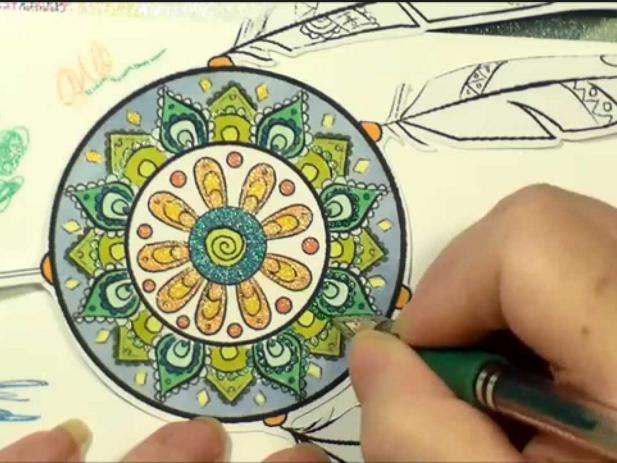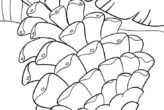Coloring Therapy Effective for Teenagers with Asperger Syndrome
By Best Coloring PagesApril 18th 2016
Coloring Therapy Proven to be an Effective Treatment for Teenagers with Asperger Syndrome
In recent years, research has established that coloring is a proven and effective treatment for teenagers that have been diagnosed with Asperger Syndrome.
This medical condition is neurobiological in nature and is considered to be a higher-functioning condition on the autism spectrum. The term “Asperger Disorder” has been included in the medical diagnostics manual (DSM-IV) since the year of 1994 within the United States; however, it was identified as a legitimate medical diagnosis in Europe just over 6 decades now.

If you have a teenager that has been diagnosed with this neurobiological disorder, you are likely seeing them experience numerous difficulties. You will be pleased to know that coloring therapy may just be the one treatment that your teen needs to cope with the symptoms of their condition.
In this guide, you will learn about Asperger Syndrome and how coloring is an effective treatment for the condition.
The Characteristics of Asperger Syndrome
As a parent of an adolescent with Asperger Syndrome, you are likely very familiar with the characteristics of the condition. You know and understand that your child has difficulties and deficiencies when it comes to social situations and communication skills.
Despite having a normal or an exceptionally high IQ, your teen may require services and activities in special education. Your teen may appear to be a bit odd or eccentric; naturally, this makes them a target for being teased and/or bullied by their peers.
Your teenager – most likely – really has a desire to fit in and make friends; however, it is hard for them to connect to others on a social level. It is also very common for them to develop certain types of mood disorders as teenagers. Additionally, the adolescent may display the following:
- Many teens with Asperger Syndrome will show discomfort and possibly defiance when a change in a schedule occurs.
- It is common for an Asperger adolescent to appear to be apathetic to people and situations around them.
- Many teenagers with this neurobiological condition will have an extreme preoccupation with only a few different interests.
- It is common for an Asperger teenager to become overstimulated by conditions in their environment. When this happens, it could result in frustration, anxiety, and/or outbursts.
- Many teenagers that have Asperger Syndrome will either not make eye contact with others or will continuously stare at others in an inappropriate manner.
Coloring as Therapy for Asperger Teens
Asperger Syndrome is commonly perceived as a medical condition that results in a lack of flexibility when it comes to thought patterns.
It is also believed that the Asperger adolescent will have intractable behaviors. While it is true that the condition causes deficits in socialization, it has also been established that the condition results in complications when it comes to the imagination.
It is a known fact that creative processes of the imagination have a positive and productive effect on the neurological processes of the Asperger teen. Subsequently, this means that coloring could aid in alleviating many of the dysfunctional behaviors that teens with Asperger Syndrome experience and display.
Furthermore, logical-based thinking and other cognitive functions may be channeled through the means of coloring. If you have a teenager with Asperger Syndrome, you should provide them with numerous opportunities to color!
You will, immediately, start to see a vast array of improvement!



